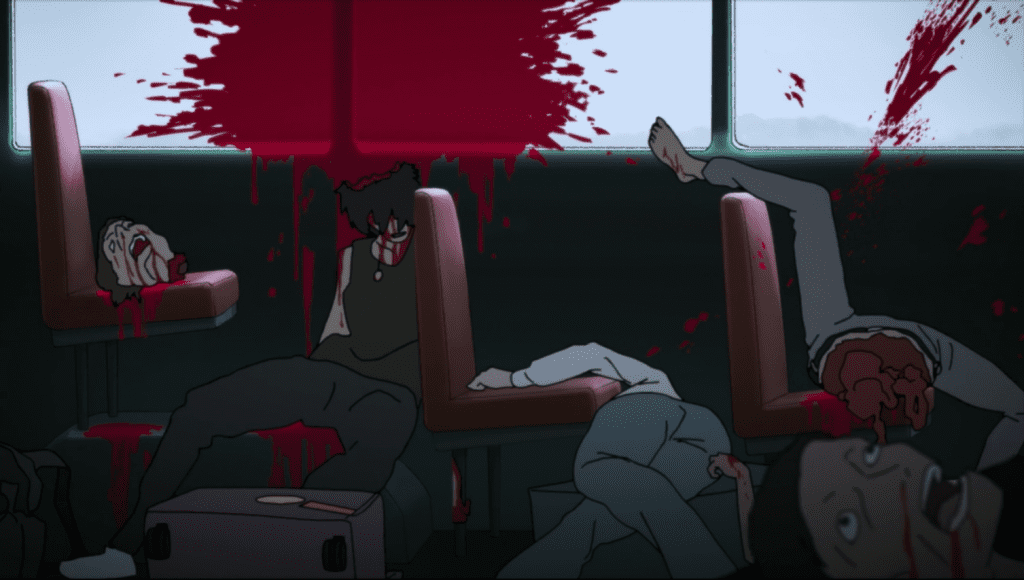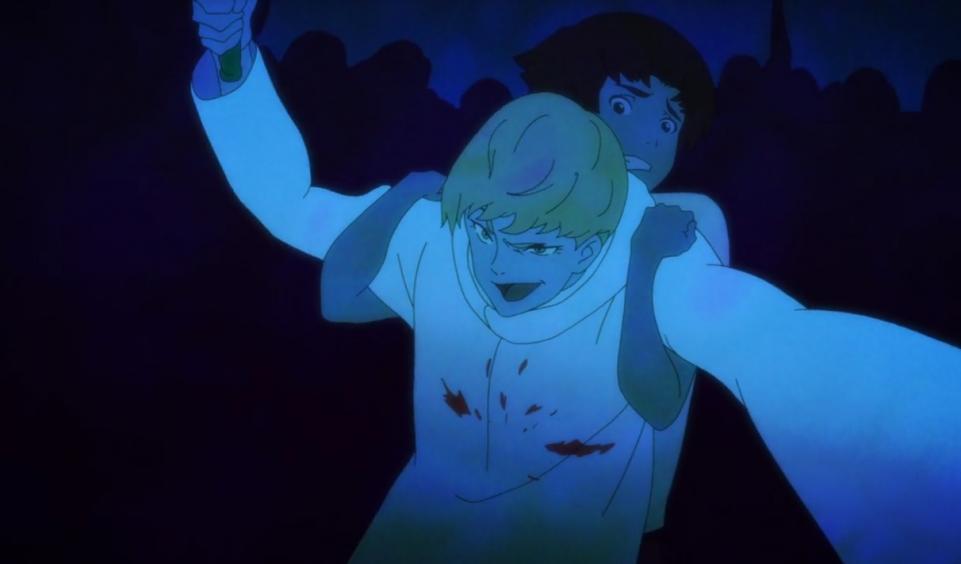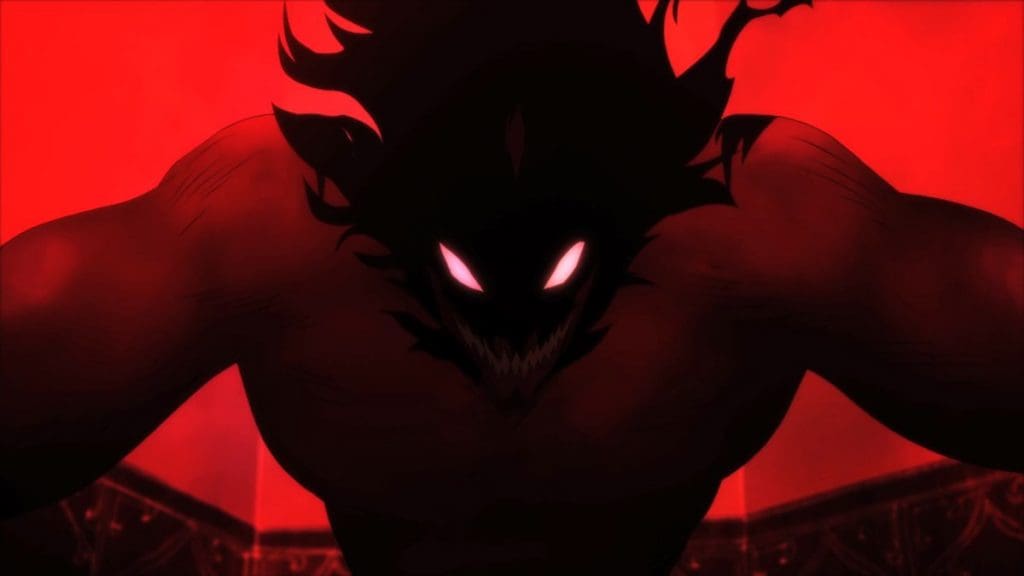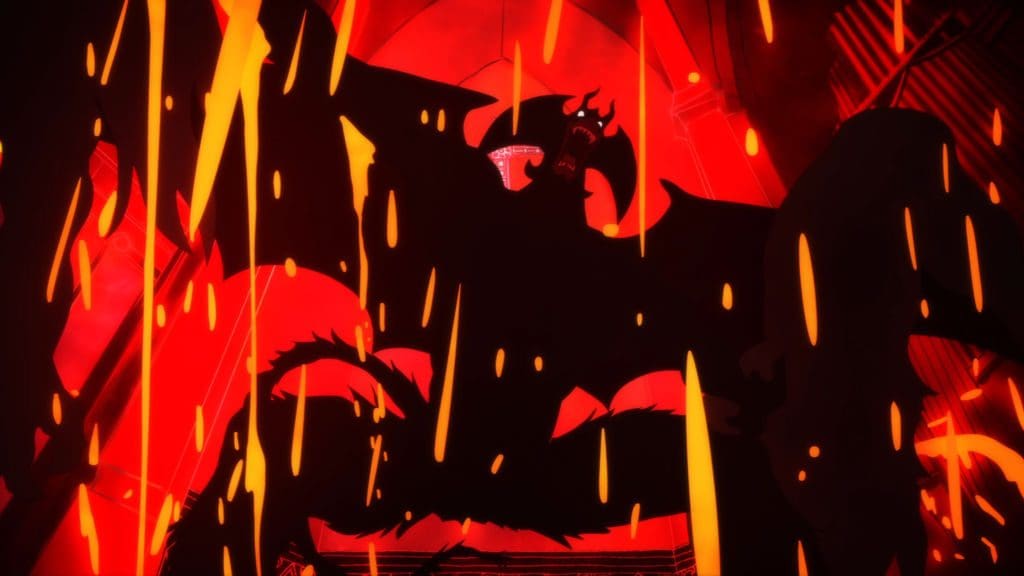Devilman: Crybaby Review
What is this?
Well, it’s a strange, shiny object that I found on the beach the other day. And see? If you turn it just right… Oh! Oh, you mean Devilman!? Okay. Devilman Crybaby is a Netflix Original Anime directed by Masaaki Yuasa (Space Dandy, Samurai Champloo) and written by Ichiro Okouchi. It’s an adaptation of the original manga by Go Nagai, skewing closer to its source than the previous 1972 adaptation. It’s also batshit insane in the best possible way. A chaotic fever pitch of hormones, violence, and pathos that culminates in one of the most moving apocalypse narratives I’ve ever digested.
Nominally the story of a sensitive boy named Akira tasked with saving the world from demons by becoming one, Devilman Crybaby posits questions concerning the validity of heroics, as well as mankind’s moral culpability in being alive. All with a psychedelic, speed-of-sound verve that makes for a thrilling and thought-provoking piece of fiction.
Wow. That sounds intense.
It is. But Yuasa manages this intensity by overwhelming the viewer instead of drawing things out. This is not a subtle show, or at least not on the surface. The narrative moves at the boundaries of comprehension, often condensing world changing events into five minutes of narrative progression.
However, this balls to the wall approach is intentional, as it expertly mimics our own social and historical experiences. Information and news moves faster than ever, and so does our digestive tract when it comes to these current events. Devilman Crybaby portrays a youth-oriented world absolutely dominated by information and sensory gratification, presenting such obsessions in lush displays of sex, gore, and cruelty. It’s like Yuasa is channeling the visual tendencies of Nicolas Winding Refn through the aware crassness of Paul Verhoeven, all to create a Japanese anime that is twenty percent a soft-core porn film.
Wait. What?
Yes. That is exactly the reaction you should have to this material. Much of this show will make people unfamiliar to the genre very uncomfortable. It is an aggressively nude and violent animal that will make people uncomfortable with animated sex and violence want to take a shower. However, for fans long desensitized to this kind of thing, it is almost refreshing to see a show with so little a sense of restraint. This mature content veers wildly in tone from the gleeful bacchanal to utter emotional devastation, often within minutes. But that is always the point. The world of Devilman is one that is rushing to an apocalypse, a freight train of sound and fury that has reached an omega point of chaos.

Does it ever let up? This sounds exhausting.
Yes it does, but just enough. The heart and soul of this devil-may-care narrative focuses on a trinity of characters that share enough reflective moments to build a genuine sense of love and devastation. Protagonist Akira, the titular Devilman, is the central lynchpin here as his efforts to stall the end times are both supported and offset by his love interest, Miki, and brother-in-spirit, Ryo. Miki tends to run a little close to waifu territory, but her relentless optimism is utilized and subverted to brilliant effect.
That being said, the show and characters (namely Akira) literally slobber over her sexuality, albeit with a self-awareness that perhaps mitigates the sexism. Akira and most characters, male and female, are absolutely loaded with hormones. Their general horniness bleeds into all of their interactions. This creates an interesting, strangely successful dynamic, of asking you to care about these characters while, at the same time, looking through their clothes with x-ray vision. It’s all a little surreal, but it works in a way that no anime has been able to do; a dual action of upholding and subverting the negative fan service tropes of this branch of animation.
While the emotional investment in the show comes largely from Akira’s relationship with Miki, it is through Ryo that the narrative manages to acquire a more sophisticated depth. To go in too deeply on Ryo’s character arc would be to spoil. But suffice to say his presence in the narrative asks important questions concerning the limits and redemptive qualities of friendship. Ryo’s ultimate progression is really the core element of Devilman’s narrative concerns. It’s a resolution that, while thoroughly tragic, can be viewed through either a lens of cynicism or optimism, redemption or damnation.
Okay, my eyes are really important to me, how does it look?
This is a tougher question. The overall animation style brings to mind a more static Samurai Champloo. But it lacks that show’s rhythmic fluidity. There are times when Devilman Crybaby looks fantastically freeform, and other times when it looks strangely cheap. The combination that can create a certain herky-jerky viewing experience. The animation is at its best when depicting movement, providing neon drenched raves, highways, and demonic throw-downs. When handling the seemingly required crowd-addressed moral speeches about why-can’t-we-all-get-along, apparently a necessity in all anime, Devilman really shows some low-detail warts. Thankfully these moments are infrequent, but they do serve to destabilize the show.

You know, my ears are really important to me, will they be happy when watching Devilman: Crybaby?
While the visual components are hit and miss, the score and soundtrack are constantly excellent. Like Champloo, Devilman uses a laid-back, hiphop style as its core sonic identity. It even goes so far as to employ a quartet of street rappers to serve as a pseudo greek chorus, providing emotional coloring for a Japan going down the drain. Its a useful, style over substance play, that provides further uniqueness to an already strange show. The rest of the music consists of appropriately gothic synth. It lands square on target as things get all heaven versus hell. I should note that I did watch this with the english dub which, though sacrilegious to the faithful, I usually prefer. The performances are perfectly fine without being exceptional and do a good job of remaining normalized in the broader emotional moments.
Recommendation?
If you like anime you are doing yourself a disservice by not watching this show. It is a head above any of the original content Netflix has come out with. And its one of the best, most unique series to come out of the anime medium in a long while. There is really nothing quite like it. I will be personally disappointed if you do not drink from its cup. Devilman Crybaby, despite a few animation weaknesses, is a pulsing, fluid soaked masterpiece that merges much of anime’s wide tendencies into an unexpectedly heady delight. It’s cool. Its tough. And it’s a tragic expression of brilliance.




